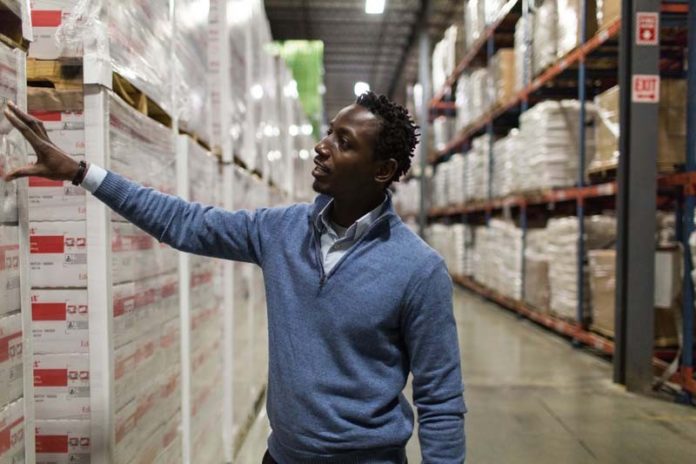
While visiting her father’s homeland of Tanzania back in 2007, Navyn Salem was struck deeply by the many children she saw suffering from malnutrition.
A mother of four, Salem was inspired to take action, knowing that finding a solution to battle malnutrition could potentially impact millions of children’s lives.
Salem’s research, passion and vision for creating a sustainable social enterprise that would address the issue of global food insecurity became a reality two years later. In 2009 she founded Edesia, a Providence nonprofit manufacturer of peanut-based, nutritious, ready-to-use foods, or RUFs, distributed by major humanitarian organizations such as UNICEF, the U.N. World Food Programme and the U.S. Department of Agriculture.
To date, Edesia has produced nearly 30,000 metric tons of food products that have been distributed to nearly 4 million children in 46 countries.
“We focus specifically on those populations that are most vulnerable, such as young children under the age of 5, schoolchildren, pregnant mothers, refugees and adults with HIV,” Salem said.
Edesia’s product line includes Plumpy’Nut (treats severe acute malnutrition), Plumpy’Sup (treats moderate acute malnutrition), LNS-MQ (targets prevention of acute malnutrition), Enov’Nutributter (prevents chronic undernutrition), Enov’Mum (supports undernourished pregnant and lactating women) and PeanutPOW (intended to provide a boost of energy to schoolchildren).
A huge benefit of RUFs is they do not need refrigeration or water.
Edesia earned revenue of $29 million in 2015 – a 17 percent increase from 2014 – with a 32 percent increase in tonnage shipped. The company has 78 full-time employees.
In 2015 alone, Edesia shipped 138 million packets, reaching 1 million children in 31 countries.
A significant process improvement has enabled Edesia to increase its loading capacity per 40-foot container from 20 metric tons to 25 – equal to an increase of 350 boxes, or 52,500 packets, per container.
The increase in load capacity allows the company to optimize vessel payload limits. It was made possible by consolidation efforts at the pier at Port Elizabeth, N.J., and frees Edesia from overland road payload restrictions.
To meet demand, Edesia is in the process of moving into a newly constructed, state-of-the-art factory in Quonset Business Park in North Kingstown. The facility, slated to open in May, will include an innovation center, Salem said, to make Edesia a more responsive and efficient organization, with the capability to address food shortages in any location around the globe at a moment’s notice.
“With these new capabilities,” Salem said, “new products will be created, tested and optimized to tackle childhood diseases and health conditions for other at-risk populations. This will establish Edesia’s unique place as a nonprofit manufacturer that produces lifesaving foods for all populations and develops new innovations that help optimize U.S. food aid, in terms of both cost and nutrition.”
If you think the work that Edesia does and the impact its products have in the lives of so many across the globe is very personal to the company’s employees, you’re right.
Just ask Andrew Kamara.
Kamara, Edesia’s logistics/distribution manager since 2010, spent three years in a West African refugee camp in the late 1990s, during the wake of civil war in his home country of Sierra Leone.
“I watched mothers bury their young children due to lack of food and malnutrition,” Kamara said. “My most valuable life lessons came from that period. I knew then that I wanted to impact the lives of children suffering because of war, hunger and malnutrition.
“The work I do at Edesia is directly impacting the lives of young children just like the ones whom I watched fade to death in refugee camps,” he said. •












